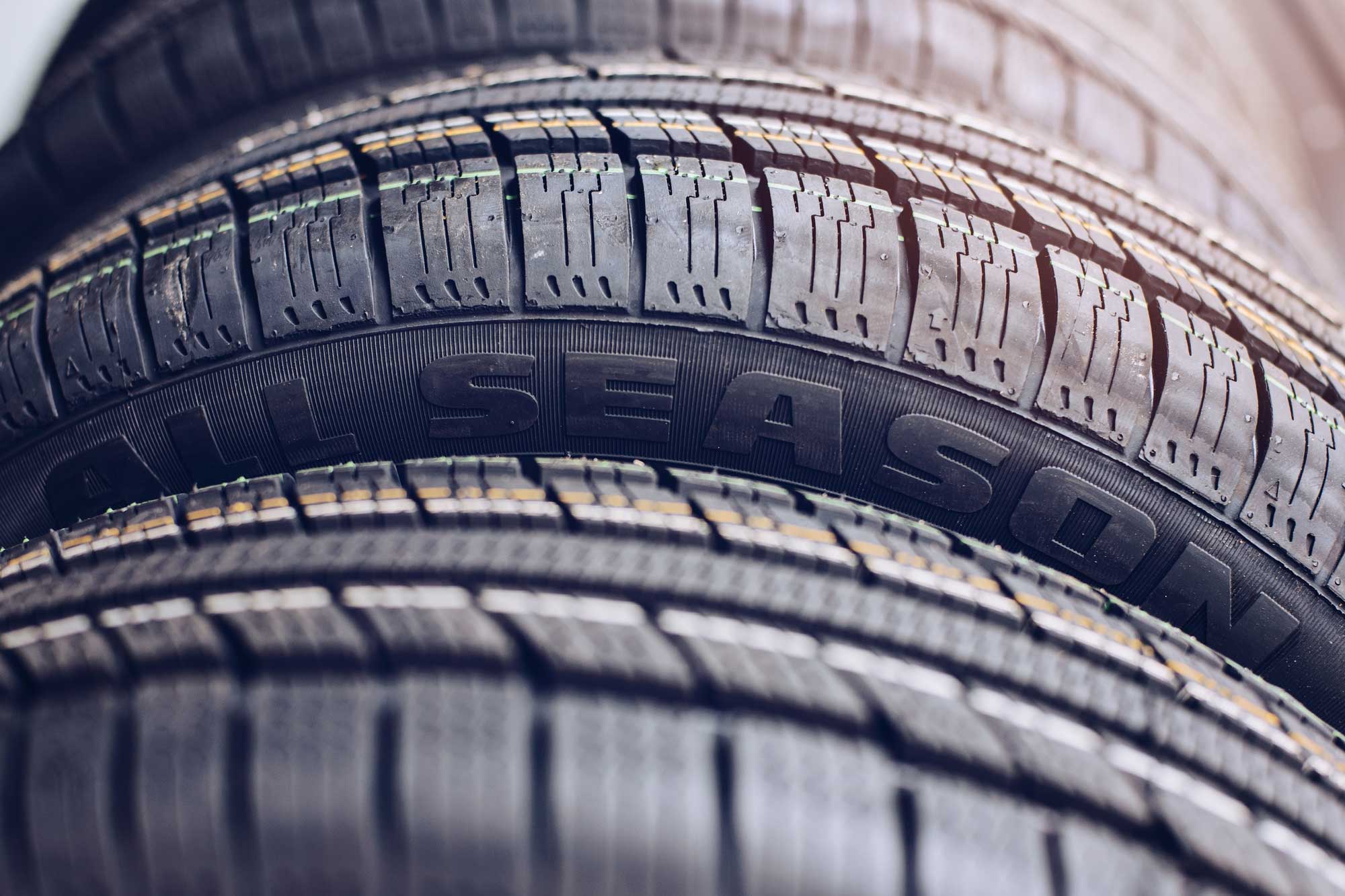Everything You Need to Know About All-Season Tires
All-season tires aren't necessarily appropriate for all seasons.
 Shutterstock
Shutterstock
Depending on where you live and your local driving conditions, all-season tires may be ideal for use in all four seasons. Then again, they may not. There are a few factors to take into consideration when deciding when to use all-season tires and when you should consider alternatives.
What Is an All-Season Tire?
An all-season tire is a compromise. The rubber compound and tread pattern do their best to provide traction in a variety of weather and road conditions — hot or cold, wet or dry. That said, it's not feasible for one rubber compound to excel in both triple-digit and subzero temps; tires that remain pliable when cold want to melt in the heat, and those designed for hot weather and high performance turn rock hard when the mercury drops. In many geographic contexts, a more appropriate name for all-seasons would be three-season tires.
The majority of passenger cars wear all-seasons, and some sports cars offer them as standard or optional equipment. You could use all-season tires all year if your car rarely sees temperatures below around 45 degrees Fahrenheit. Otherwise, you should consider looking into buying a set of dedicated winter tires for the cold season.
How Long Do All-Season Tires Last?
Every tire is different. The road conditions, type of driving you do, and your driving style will also affect the number of miles you get out of a set of rubber. In general, a standard or touring-oriented all-season set lasts between 55,000 and 85,000 miles, and may offer a treadwear warranty of as many as 80,000 miles.
Performance-oriented all-seasons tend to have slightly shorter tread life due to their softer rubber compounds. They usually come with warranties of around 45,000 miles. It's a good idea to look up the tire's treadwear rating before you buy, and check tread depth regularly so you know when it's time for replacements.
What's the Difference Between All-Season, All-Terrain, and All-Weather Tires?
All-season and all-terrain tires use a similar compound — one that will work reasonably well in both warm and cool temperatures — but all-terrains have blockier tread patterns to tackle off-road situations. You'll often find them on pickups and SUVs.
While the terms all-season and all-weather are sometimes used interchangeably, the latter is a term used on some Goodyear tires (e.g., the Eagle Enforcer All Weather) and not a tire type.
Do All-Season Tires Work in the Snow?
Many modern all-season tires carry the three-peak mountain snowflake (3PMSF) icon, which denotes that they've passed a test for minimum traction in medium-packed snow. So while an all-season will work in snow and on cold roads, this is not the same as being designed expressly for winter driving.
Not every all-season tire is created equal: A performance-oriented tire will generally fare worse in snow and ice than a touring one. It's a compromise either way. Looking into weather-specific compounds and investing in a set of dedicated winter tires will help cover all bases.
Written by humans.
Edited by humans.
 David Gluckman
David GluckmanDavid Gluckman has over a decade of experience as a writer and editor for print and digital automotive publications. He can parallel park a school bus, has a spreadsheet listing every vehicle he’s ever tested, and once drove a Lincoln Town Car 63 mph in reverse. When David’s not searching for the perfect used car, you can find him sampling the latest gimmicky foodstuffs that America has to offer.
Related articles
View more related articles